So, your business and customer base are expanding! With that, you’ve started to research how you can improve and optimize your customer relationships, and to manage your sales more effectively as well.
And after a few searches, Google suggests adopting a Customer Relationship Management (CRM) system? That sounds too fancy, too unnecessary, and too big of an investment!
But do businesses and SMEs like YOU really need it? - Yes.
If you think that a good CRM is restricted to businesses with never-ending budgets and complex software ecosystems, think again. There are plenty of solutions out there that are well-tailored to your particular needs as a small business. With the proper system in place, you don’t have to remain captive in spreadsheet hell or struggle through tedious, time-consuming manual tasks every day.
Another way to consider whether or not a CRM system can help your business is to think about the challenges that CRM systems aim to solve. Let’s take a look.
It may be the system that you never knew you needed. 🙂
Let’s be real, these are your daily struggles:
Struggle #1 - Your customer data is hard to locate, you’re still using spreadsheets
|
Is this your situation? You were using Google Docs to manage all of your customers and processes. This meant sharing Google Sheets with clients and different departments. This got unmanageable and messy over time - but there you are, spending hours sorting out your data after another miscommunication with your colleague. |
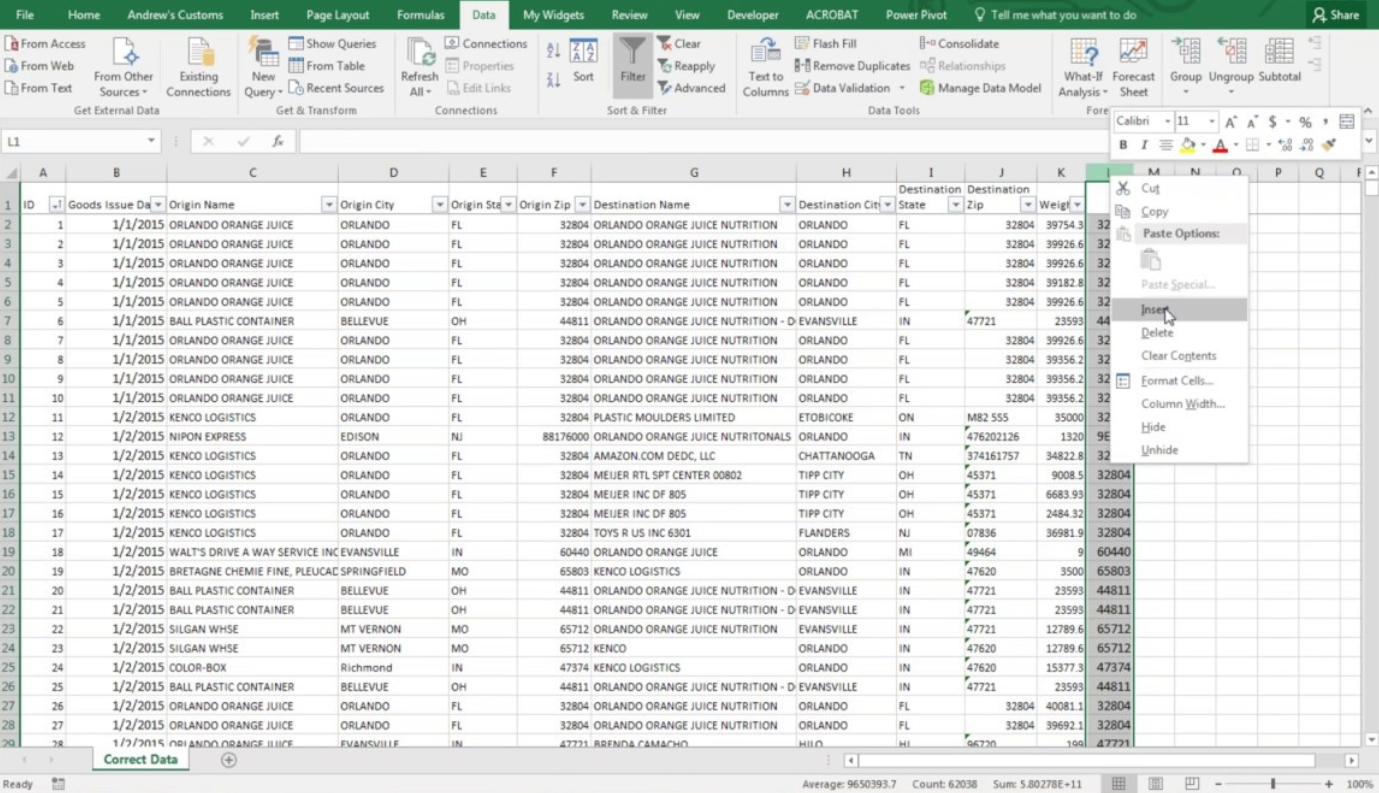
Just ask yourself: Do you want to be looking at this every day?
It’s 2020. Yes, spreadsheets, emails, and sticky notes have worked just fine but as the business expands, you won’t be able to cope by just using those.
A CRM stores this data and processes. Now, when your sales team enters information, the right departments will be notified automatically that there is new work for them to do.
And here’s how - by automation.
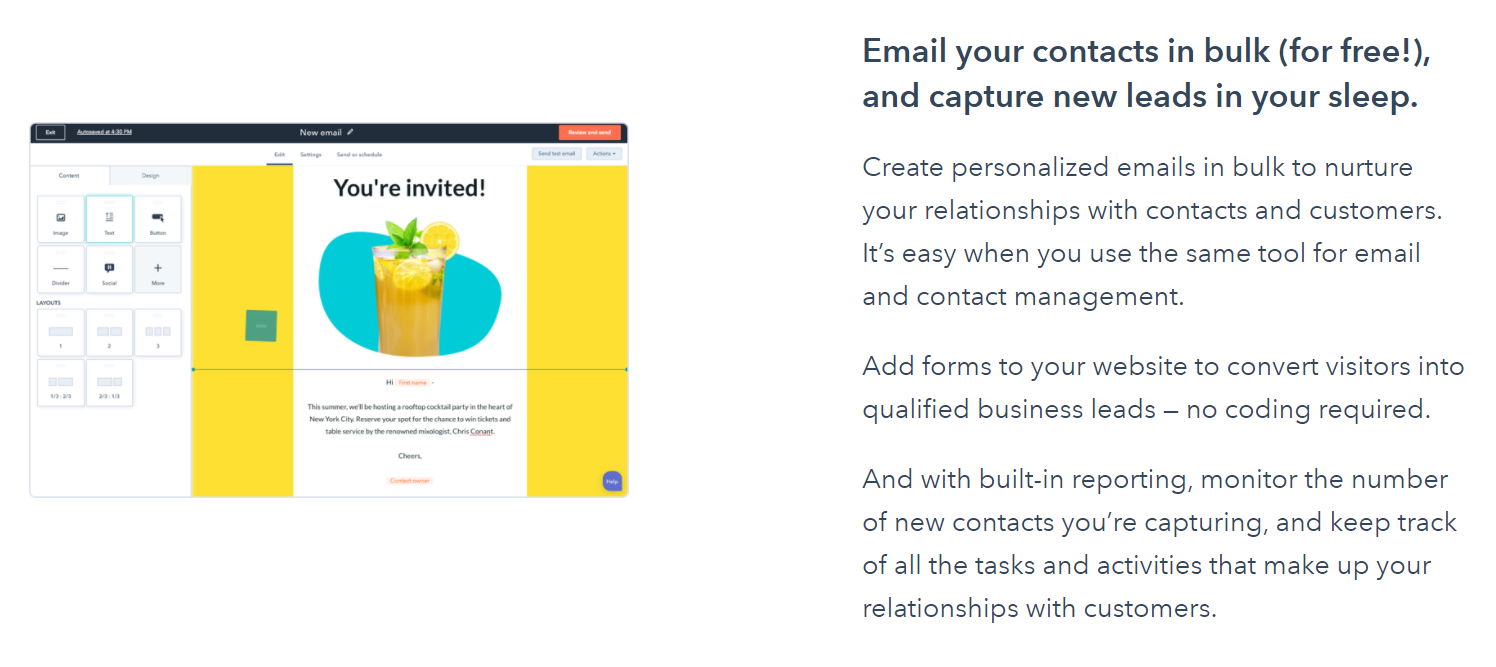
Some CRM examples of automation include:
-
Sending out a thank you when a customer makes a purchase.
-
Upsell or cross-sell a client if they purchase a particular product.
-
Offering a birthday greeting with a promo code.
-
Sending a discount to a customer that hasn’t made a purchase recently.
-
Notifying current customers when a new product has been launched.
-
Sending an email to people that abandon purchases in their shopping cart without buying.
-
Notifying customers when an item on their wish list goes on sale.
-
Providing after-the-sale support in the form of a helpful how-to or tips on how to upgrade.
-
Sending customers information on new products they might be interested in, based on prior purchases.
-
Conducting customer satisfaction surveys.
(Pro-tip: Did you also know by using a CRM, you don’t risk your own email getting banned when you send out newsletters to your customers?)

Struggle #2: Unable to keep up with lead flow
As we’ve mentioned in our first situation, tracking leads manually will drive you up the wall.
A lead can come from many channels – a website, cold calling, social selling, or even an event/seminar.
With a variety of channels, it must be clear which person or department is ultimately responsible for logging the lead in, because this determines how the lead should be routed and how the follow up should take place. Without a clearly defined workflow, leads can end up lost or forgotten, which results in frustration, lost sales productivity, and even a bad customer experience. You don’t want to be calling a lead twice, that’s a waste of effort that could be put onto something else!
An intelligent CRM system will quickly sort and prioritize your leads so that your sales team can respond to them in a timely, efficient manner.
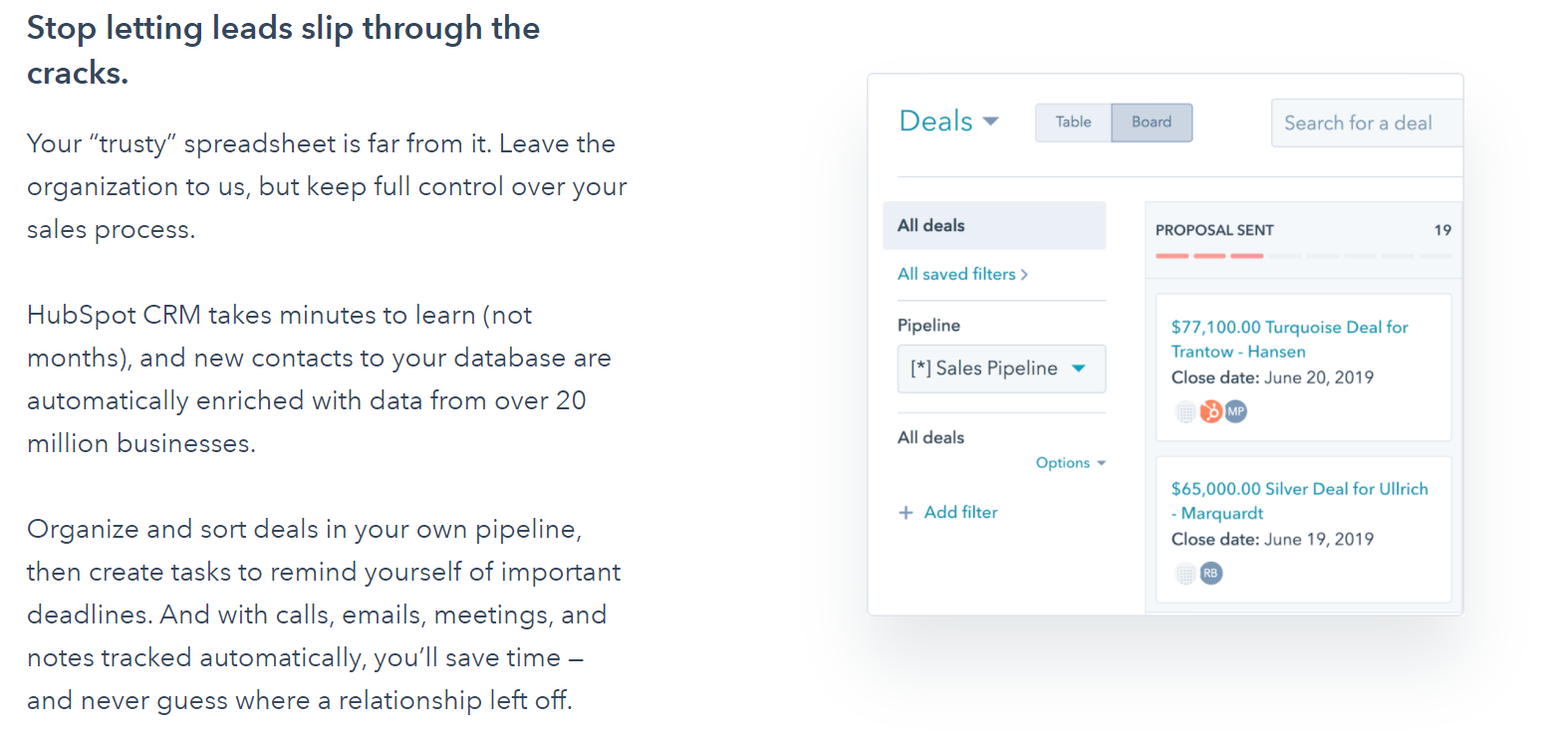
Struggle #3: You don’t know what your sales teams are up to
In recent months, most of us have been working remotely due to the pandemic. And misunderstandings or mishaps do happen when we don’t hear or see each other.
How then do you keep yourselves accountable? By asking them to report every day? You’d feel bad for asking, and they’d feel micromanaged. It’s bad enough that you’re not talking face-to-face, but now you’re rolling your eyes whenever you see your colleague’s text?
OR maybe
You’re using a spreadsheet, and suddenly you find your data being deleted by someone. And you don’t know who it was because they’ve been on the sheet anonymously. Oops. Talk about bad luck!
With a CRM, everyone is accountable for their work and you’ll know who does what (or doesn’t). Other than that, a CRM offers shared calendars, document templates, and email integration, uniting all team members and keeping everyone up-to-date.
It’s essential to know what your sales teams are doing and how they’re performing. The CRM will help with that by showing their deals whether they’re closed or ongoing. It will streamline a lot of your sales reps day by logging notes, playbooks, tasks, and reminders so that your sales reps are organized.
Imagine reaching out to a lead that your coworker has already reached out to. Talk about an awkward moment and also a waste of time. With a CRM, you can see your contact’s profiles which shows if they’ve been communicated with recently. The information is all in the system. See! How easy is that?

Struggle #4: Customer service is coming up short
Your customers are the most critical aspect of your business – you need to support them, value them, and attend to them in the shortest time possible. If they’ve invested in your product, you’d need to invest to take care of them. The last thing you want is to lose them due to subpar service.
Usually, customers judge businesses on how they handle customers’ complaints and issues. However, through CRM, issues, and complaints can be easily resolved and followed up effectively. It is because the system can sort out issues and queries and, at the same time, forward them to the appropriate department. Forwarding issues and queries accordingly is the best option because each department has access to all relevant information that can address the issues.
A CRM for support teams includes a ticketing system to manage all customer inquiries with ease. All customer inquiries, whether by email, social media messaging, or phone calls, are captured and organized centrally in a CRM database.
Having a detailed social conversation history is a great way to start. That way your brand can consistently communicate at the same level through a customer’s experience. This is the same reason why so many customer service teams work off customer profiles.
Check this out.
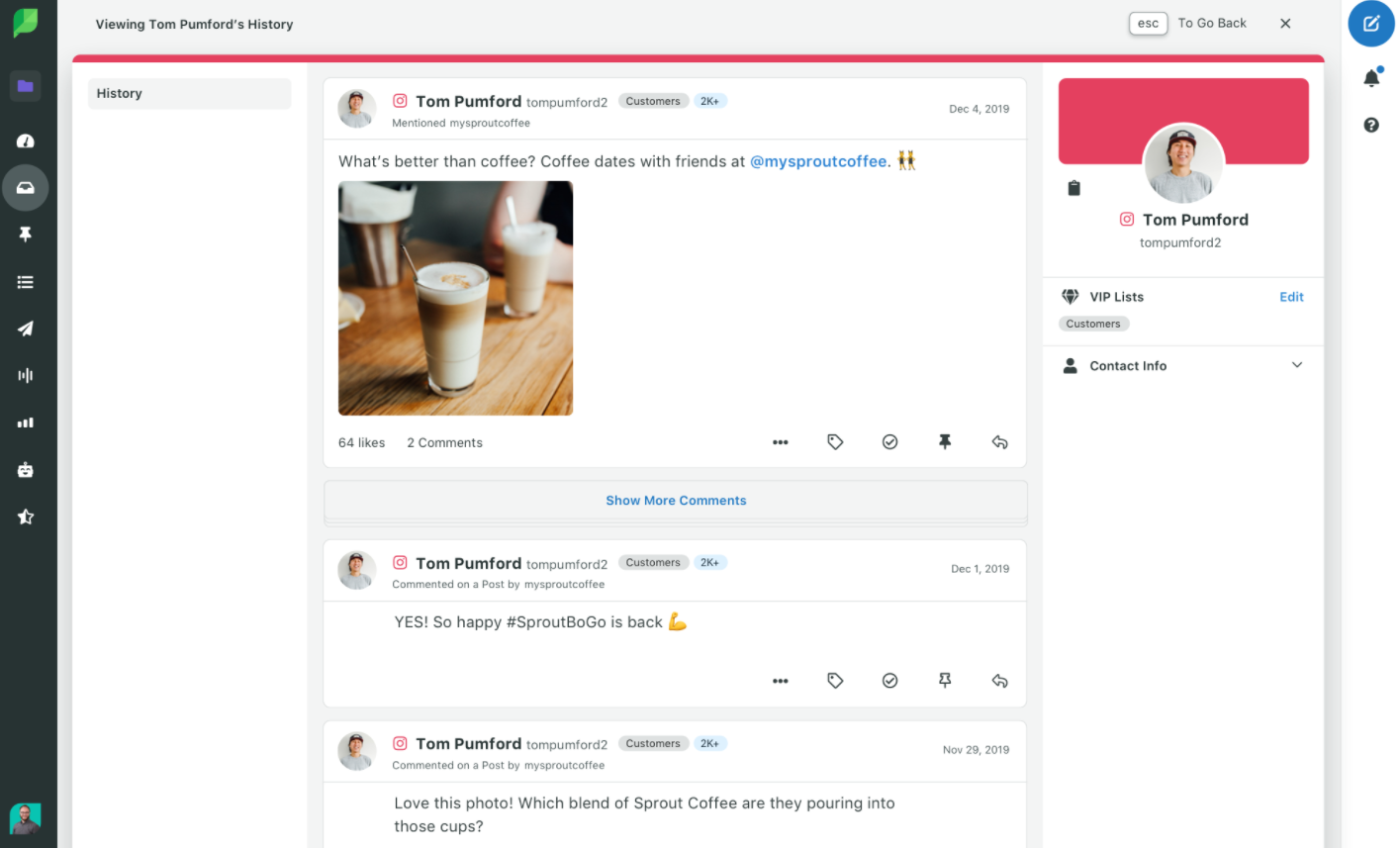
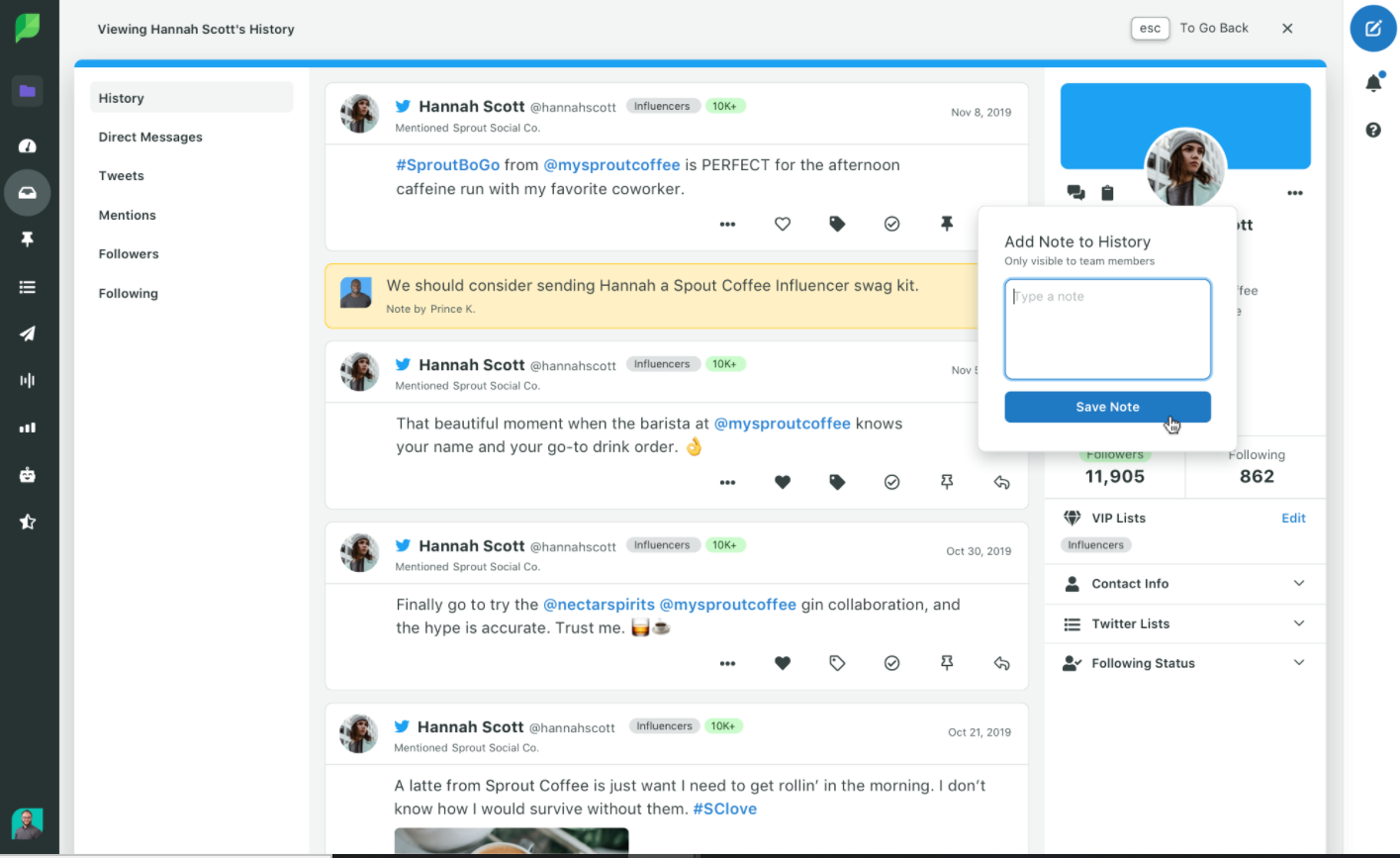
It helps those in support know where a person is in the buyer journey, previous interactions and what might have been the issue before. With this information, your support (or social team) has valuable context around your brand’s relationship with customers, leads and prospects.
Struggle #5: Reporting process takes too much time
If your salespeople are manually entering data to produce reports, they’re spending less time doing what they should be doing: selling. If so, who is going to do the report? And even if you’ve rushed through your report, will it be sufficient and clear enough for your boss to understand?
CRMs make reporting and analyzing your processes and pipeline simple. Within a CRM, there are reporting dashboards — so you can report on any metric (such as sales performance, productivity, deals closed versus goal, etc.) across your sales, marketing, or service teams. You can pull these detailed reports at any point in time and share them directly with the team members who need to review them.
Just present the dashboard to your boss. You’ll get ROI on your CRM and scale your revenues more than you had been doing before!
Example of a Marketing Dashboard:
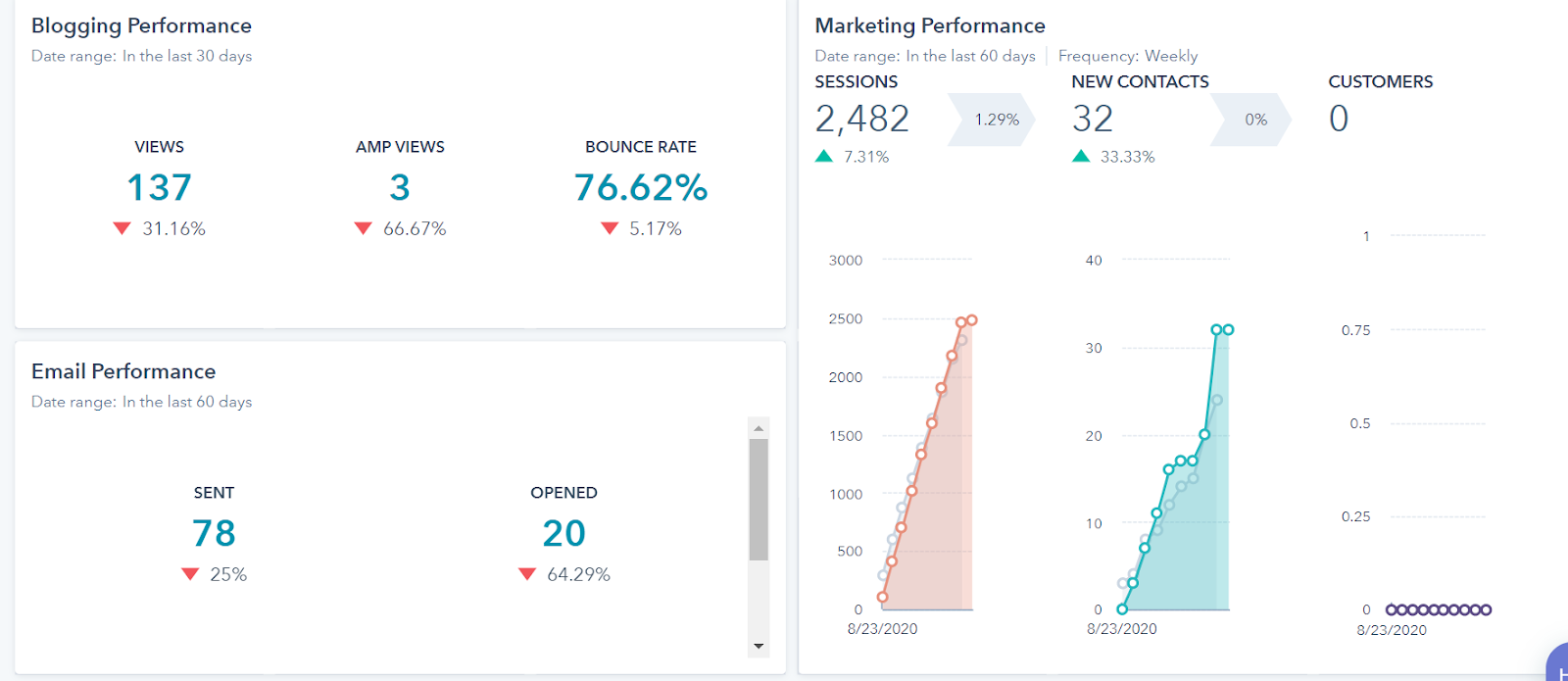
Example of a Sales Dashboard:
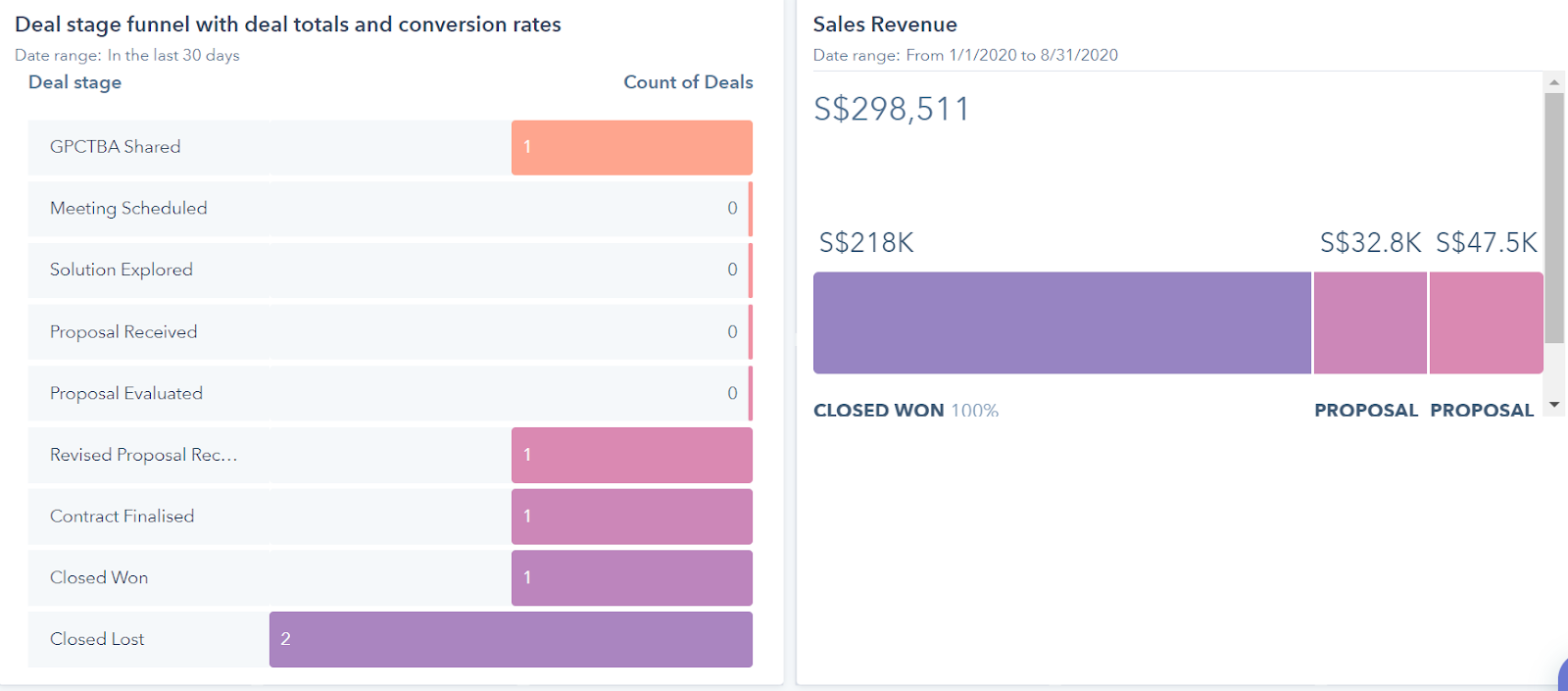
All in all, we’ve heard your struggles and have listed why it’s time to adopt a CRM. And if you’re still having doubts, here’s our solution:
Test out A CRM First Before Fully Committing
A free CRM may be the best introduction to understanding CRM and there are many available online. Free CRM systems offer the opportunity to try out a platform with your team and see if you can derive value from it without dishing out on the initial investment—especially if you’re a small business or a budding startup on a lean budget. Since it’s free, there’s really no reason you shouldn’t try it out!
You’ll be able to find out which features are most useful to you and do some window shopping before settling on a specific vendor.
Trust us, once you’ve experienced its magic, it’s hard to go back to your manual ways. It’s a —

KEEP IN MIND: Big changes take time, and every client will move at their own pace. The best thing you can do is think big for your company, think effectively for your colleagues and be responsive to your clients’ needs.
Here at clickTRUE, we can help you out with a CRM too and that’s Hubspot! If you have any questions on how to onboard Hubspot, we’re ready to assist you.
If you have any questions, feel free to contact us. 🙂

.jpg?width=803&name=Article2_1200x628_CTA%20(1).jpg)

 hello@clicktrue.biz
hello@clicktrue.biz
 info.my@clicktrue.biz
info.my@clicktrue.biz info.th@clicktrue.biz
info.th@clicktrue.biz info.id@clicktrue.biz
info.id@clicktrue.biz info.vn@clicktrue.biz
info.vn@clicktrue.biz




